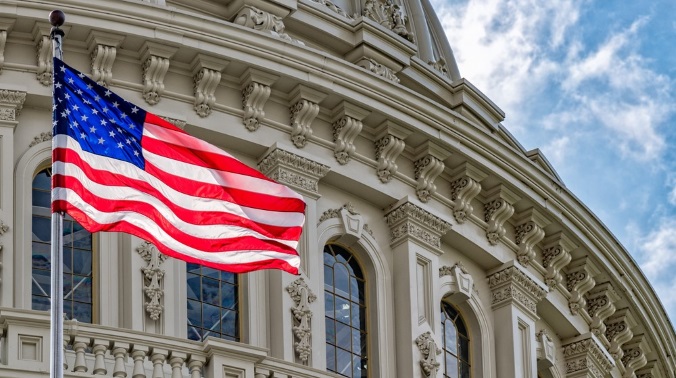In May 2014, the medical marijuana movement received its greatest legislative victory with the passing of the Rohrabacher-Farr Amendment. Introduced by U.S. Representatives Maurice Hinchey, Dana Rohrabacher, and Sam Farr, this amendment effectively prevents the U.S. Department of Justice (DOJ) from spending federal money on anything that interferes with states’ rights to implement medical marijuana programs.
Although it isn’t a law itself — the amendment was added as a rider to the federal spending bill and therefore must be reviewed annually — the Rohrabacher-Blumenauer Amendment (as it’s now known after Rep. Farr retired in January 2017 and Rep. Earl Blumenauer took over as co-sponsor) has been renewed each year by increasingly wider margins. Under the current legal landscape, this amendment is the only thing preventing the DOJ from cracking down on medical marijuana business owners and patients.
An Ironic Stance Against the “Drug” That Has Been Shown to Decrease the Opioid Epidemic
Given Attorney General Jeff Sessions’ vehement stance against both recreational and medical marijuana, the status of this provision and the federal protections it provides has been in doubt. Earlier this year, Sessions specifically asked Congress not to renew the amendment under the guise of targeting potential “upticks” in violent crime due to “drug epidemics.” While opiate addiction is at an all-time high in non-medical marijuana states, decreases in both drug overdoses and opioid prescriptions have been consistently reported in states with medical cannabis laws, making Sessions’ opposition an ironic and misled attack on the drug war.
An Uncertain Future
Earlier this month, the amendment was stripped out of the federal funding bill by GOP members of the House Rules Committee. Although a similar amendment was included in the Senate Appropriations Committee’s version of the federal spending bill, the House Rules Committee’s decision to block a floor vote put cannabis industry advocates on high alert. Those concerns were temporarily put at ease last week when existing federal protections were extended until December of this year as part of the deal President Trump made with Democrats to increase the debt limit in the wake of Hurricane Harvey.
Although Trump recently added all states to the amendment, extending protections from federal interference to every state in the Union, the exact stance of the Trump Administration is still uncertain. Jeff Sessions’ opposition to all uses of marijuana is abundantly clear, but Deputy Attorney General for the DOJ, Rod Rosenstein, recently admitted that the Trump Administration’s position on the issue remains uncertain.
The Battle Looms Ahead
The drama is playing out against the backdrop of an ever-growing chorus of voices calling for reclassification. Recently, the National Conference of State Legislatures, the National Hispanic Caucus of State Legislators, the California State Legislature, and numerous veterans’ groups joined the fray — calling for various marijuana law reforms ranging from reclassification to decriminalization.
The National Hispanic Caucus of State Legislators hopes to both dispel the racist myths surrounding the use of marijuana by people of Hispanic origin and also promote the safe and legal use of marijuana for medical treatment for all individuals who need it. The American Legion and the head of the VA itself are also taking an active stance to support access to medicinal cannabis for veterans for the treatment of Post-Traumatic Stress Disorder (PTSD), Traumatic Brain Injury (TBI), and chronic pain management. With opioid addiction continuing to rise amongst veterans, VA doctors view cannabis as a way to decrease addiction rates and combat the issues that cause an average of twenty veterans to take their own lives every day.
Bipartisan Bills Further Seek Federal Reform
Reflecting the changing views of medical cannabis, a bevy of bipartisan bills have recently been put forward that call for the federal reform of marijuana laws. These include:
The CARERS Act
Also known as the Compassionate Access, Research Expansion and Respect States Act, the CARERS Act would provide states with the ability to allow VA doctors to prescribe medical marijuana, remove CBD oil from the definition of marijuana to allow its delivery across state lines for pediatric epilepsy patients, and remove research barriers.
The Cannabidiol Research Expansion Act
Primarily focused on epilepsy research, this act seeks to reschedule CBD to a Schedule II drug to further research capabilities. It would also provide a “Safe Harbor” provision for parents who are treating their children with CBD oil for intractable epilepsy.
The Marijuana Effectiveness Drug Study (MEDS) Act
Introduced by Senator Orrin Hatch of Utah, the MEDS Act encourages research and commercial production of cannabis for medicinal purposes. It would also force Sessions to increase the national quota on medicinal marijuana.
With Senate president pro tempore Orrin Hatch (third in line to the presidency if something were to happen to President Trump) on board with medical marijuana legislation, and Trump’s previously stated 100 percent support of medicinal marijuana, there may yet be hope. If the Rohrabacher-Blumenauer Amendment holds ground, December may mark a new beginning for (and not the end of) protection against federal involvement in the legal marijuana landscape.

